
Politics
17:00, 07-May-2018
Vladimir Putin sworn in for fourth term as Russia’s president
CGTN
02:09
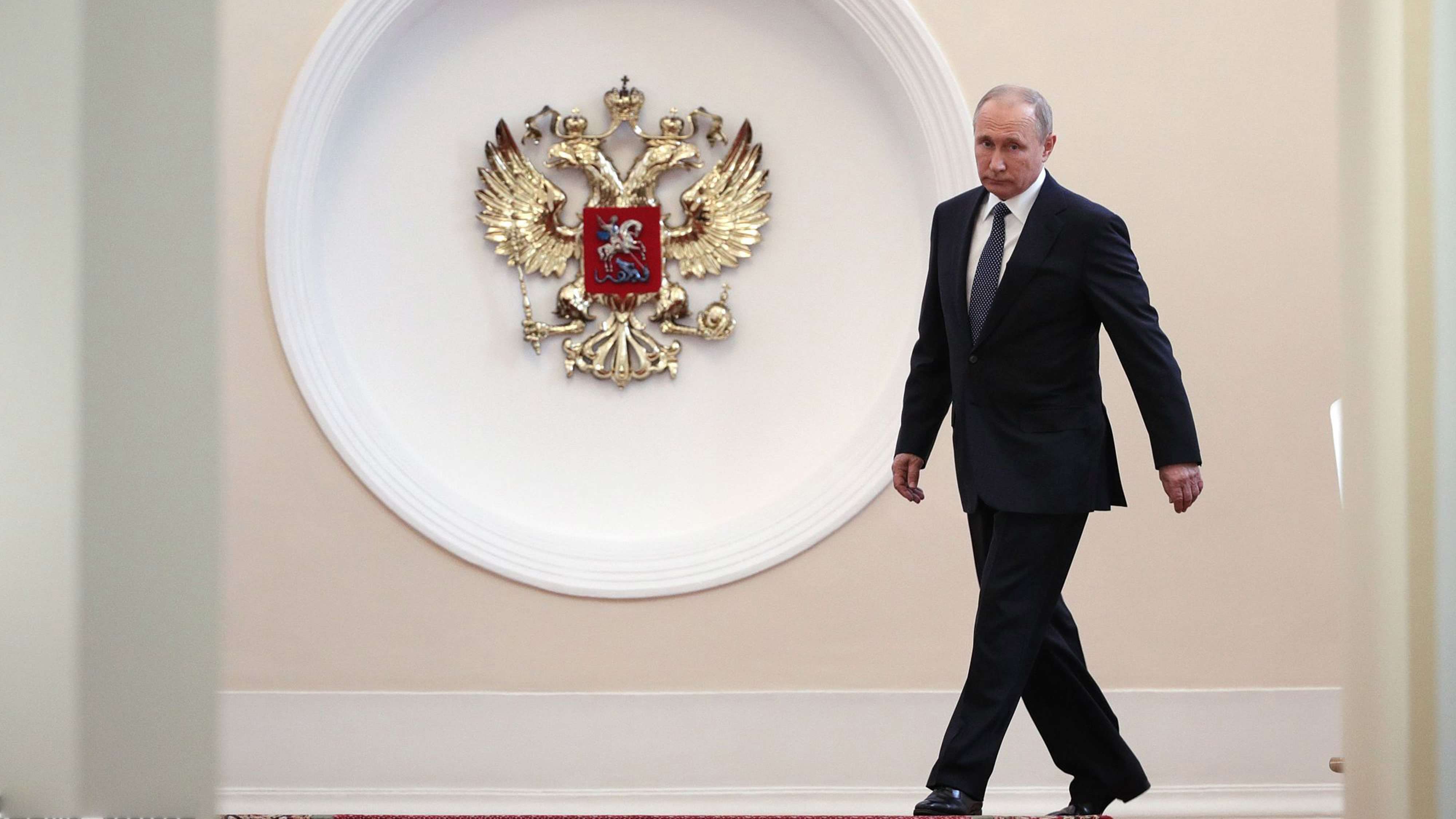
Vladimir Putin promised to build a stronger Russia on the world stage as he was sworn in for a fourth term as Russian president, extending his almost two-decade tenure by another six years.
Standing in the ornately-decorated Andreyevsky Hall of the Grand Kremlin Palace, with his hand on a gold-embossed copy of the constitution, Putin swore to serve the Russian people, safeguard rights and freedoms, and protect Russian sovereignty.
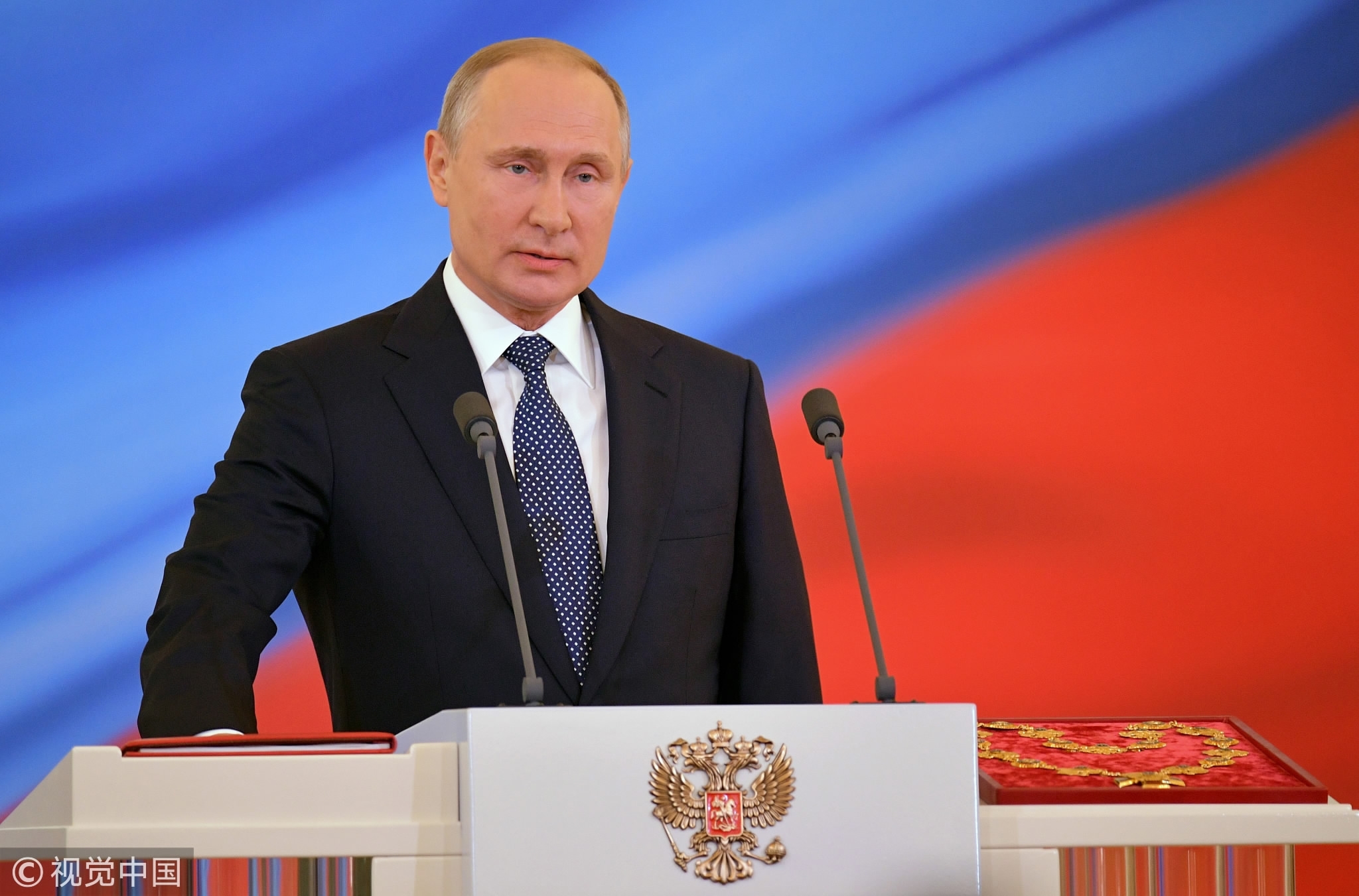
Vladimir Putin during the inauguration ceremony in the Grand Kremlin Palace, May 7, 2018. /VCG Photo
Vladimir Putin during the inauguration ceremony in the Grand Kremlin Palace, May 7, 2018. /VCG Photo
"I consider it my duty and my life's aim to do everything possible for Russia, for its present and for its future," Putin said.
Putin, in power since 1999, was predictably re-elected in Russia's March presidential election with 76.7 percent of the vote.
"I strongly feel conscious of my colossal responsibility," Putin told his audience of Russian officials and foreign dignitaries.
"We have revived pride in our fatherland," Putin said. "As head of state I will do all I can to multiply the strength and prosperity of Russia."
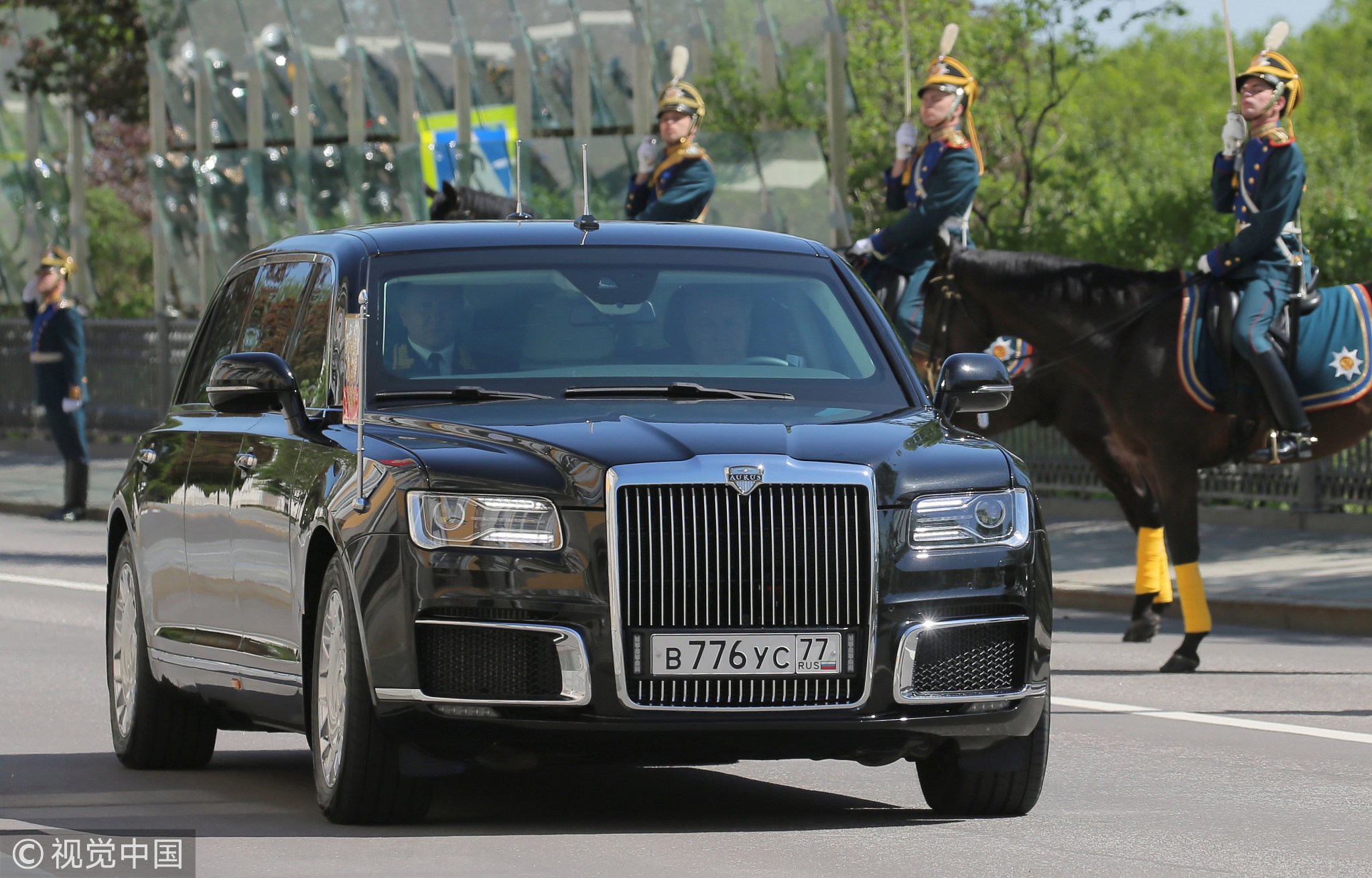
Vladimir Putin travels in a new Russian-made limousine to the inauguration ceremony, May 7, 2018. /VCG Photo
Vladimir Putin travels in a new Russian-made limousine to the inauguration ceremony, May 7, 2018. /VCG Photo
For the short journey from his office to the inauguration ceremony, Putin traveled in a new Russian-made limousine. From now on, the limousine will replace the fleet of imported vehicles Putin uses, state television reported.
With Putin sworn in, immediate attention turned to whom Putin will nominate as his prime minister.
Medvedev, who had been prime minister since 2012, resigned earlier on Monday along with the rest of the government in line with procedure.
Protest on weekend
A total of 3,500 people attended unauthorized actions in Moscow and St. Petersburg and another 2,000 in similar rallies in more than 20 cities across the country with the aim to "draw attention to the rights and freedoms of citizens", according to the Russian Interior Ministry.
Nearly 1,600 protesters were detained in 27 cities across Russia, according to OVD-Info, an independent monitor that tracks arrests.
The country's most well-known opposition leader Alexei Navalny, who was grabbed by police on Saturday and carried away by his arms and legs shortly after he appeared in Moscow's packed Pushkin Square, was released shortly after midnight.
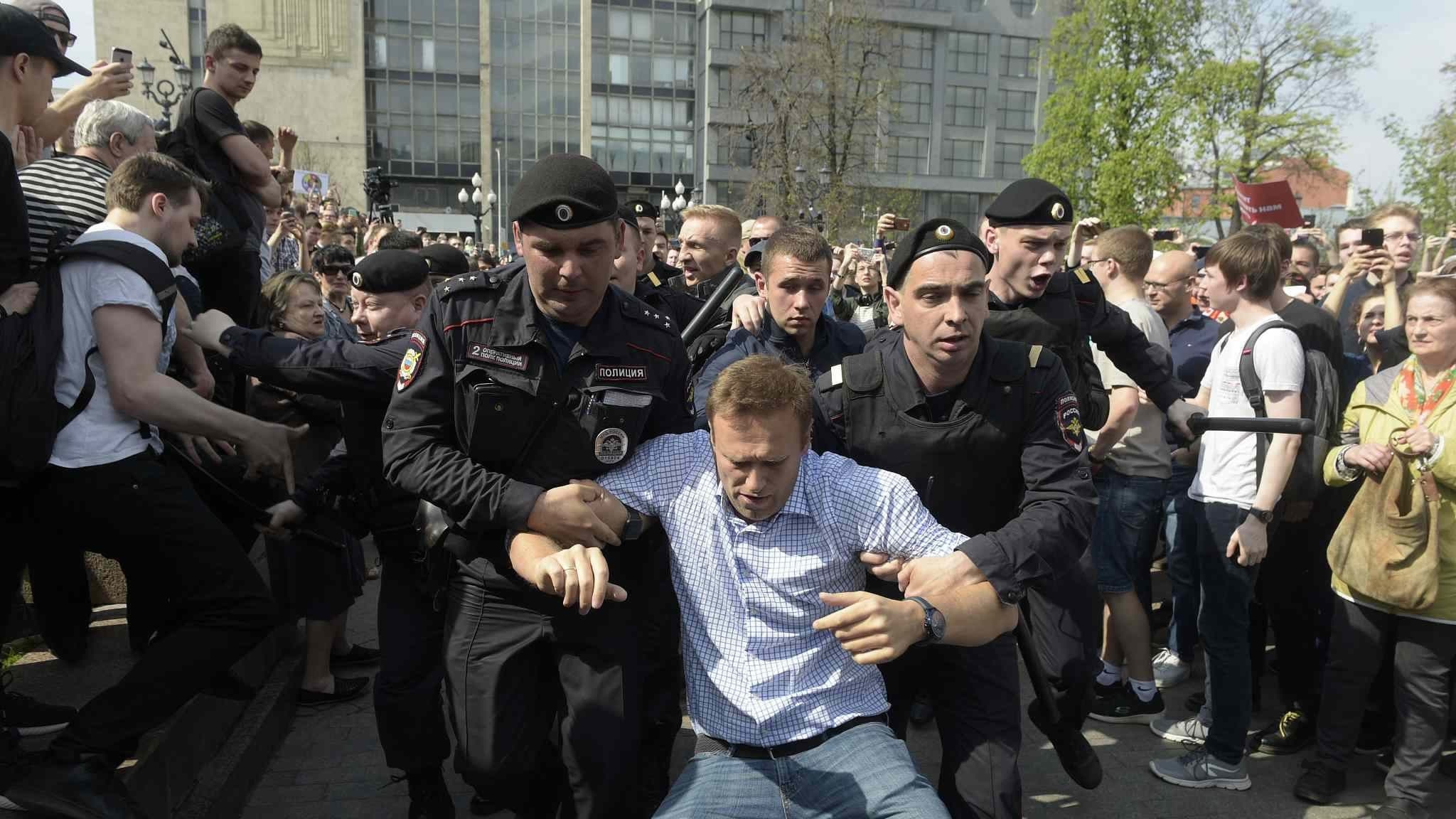
Russian riot police officers detain opposition leader Alexei Navalny during an unauthorized anti-Putin rally in Moscow, May 5, 2018. /VCG Photo
Russian riot police officers detain opposition leader Alexei Navalny during an unauthorized anti-Putin rally in Moscow, May 5, 2018. /VCG Photo
"It appears they received an order 'do not put him behind bars before the inauguration'," Navalny said on Twitter, referring to the Moscow authorities.
He added that he was accused of organizing an unsanctioned rally and resisting police.
Navalny last year was banned the right from participating in the 2018 presidential election due to his criminal conviction
Standoffs with the West
Foreign diplomats see little prospect that Russia’s standoffs with the West that have dominated the past four years will ease during Putin’s new term.
Clashes in the past few weeks over US sanctions on Russia, the conflict in Syria, and the poisoning in England of former Russian spy Sergei Skripal have left some diplomats worried that the confrontation could spiral out of control.
Opinion polls show Putin has high levels of support among Russian citizens, and Navalny has not been able to inspire a nationwide upsurge of protests.
Profile: Putin
Born in Leningrad (today's St. Petersburg) on Oct. 7, 1952, Putin graduated from the Law Department of Leningrad State University in 1975 and was commissioned to work in the former Soviet Union's State Security Committee (KGB).
From 1985 to 1990, Putin worked in East Germany as a KGB agent.
After the collapse of East Germany in 1990, he returned to the Soviet Union and worked as an assistant to the rector of Leningrad State University, Anatoly Sobchak.
Starting in June 1991, Putin began to work as chairman of the Committee for International Relations at the St. Petersburg City Hall and from 1994, concurrently held the position of deputy chairman of the St. Petersburg City Government.
02:05
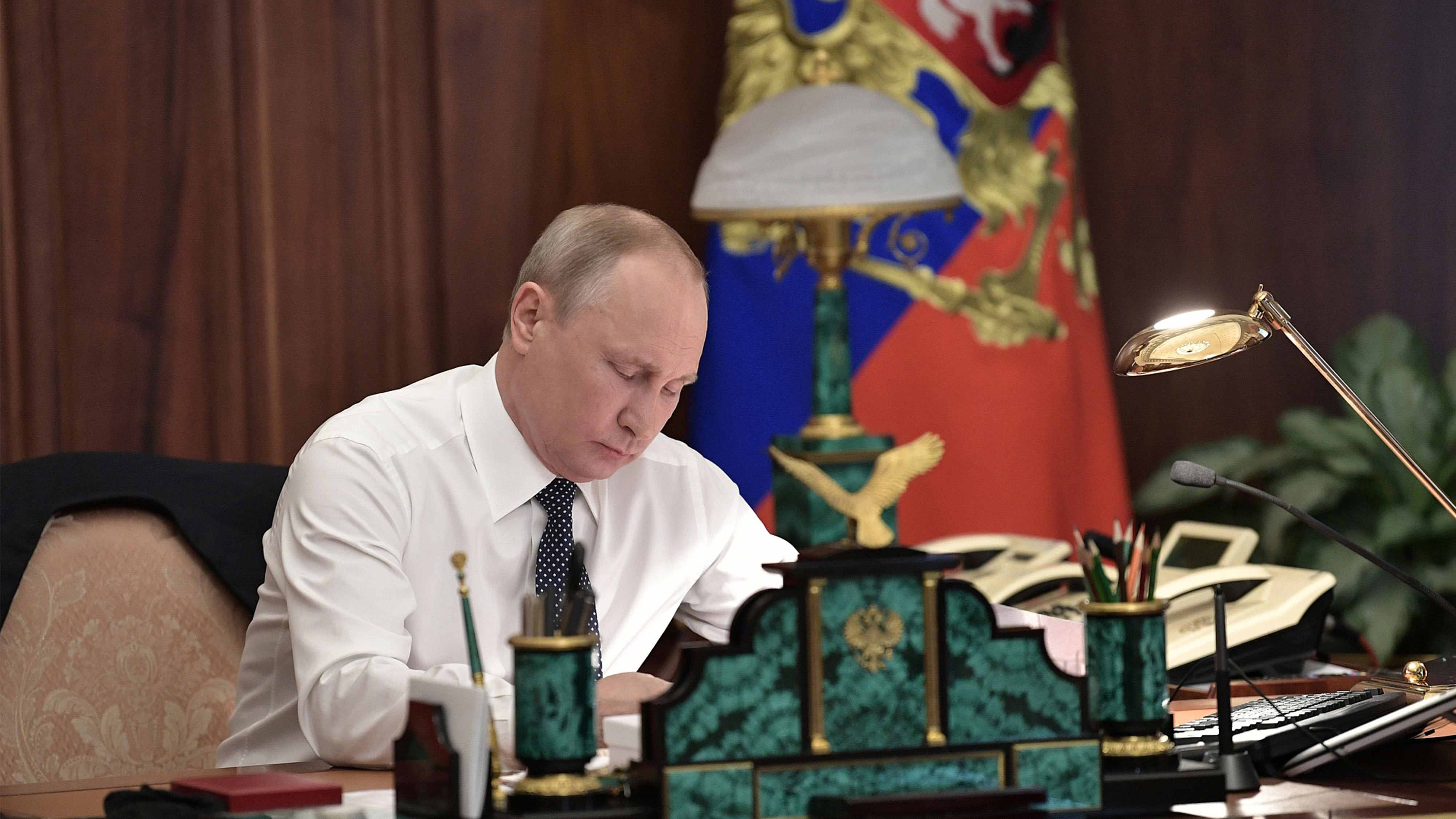
In 1996, he moved his family to Moscow, where he was offered the post of deputy chief of the Presidential Property Management Directorate.
In March 1997, he was appointed deputy chief of staff of the Presidential Executive Office and chief of Main Control Directorate.
In May 1998, he was made first deputy chief of staff of the Presidential Executive Office. In July 1998, then Russian President Boris Yeltsin appointed him director of the Federal Security Service (FSB), the KGB's successor.
In March 1999, while still heading the FSB, Putin was appointed secretary of the State Security Council. In August 1999, Yeltsin appointed him prime minister. Upon Yeltsin's resignation on Dec. 31, 1999, Putin became acting president of Russia.
Riding a wave of popularity for his bold military actions against Chechen rebels, his no-nonsense incorruptible image and his promise to rejuvenate the Russian nation, Putin won the presidential election in 2000. He was re-elected president in 2004 by a landslide victory.
In the 2008 presidential election, Putin endorsed then first Deputy Prime Minister Dmitry Medvedev as he himself was barred from seeking a third consecutive term under the Russian Constitution.
After Medvedev's election as president, Putin became prime minister in the new government.
In September 2011, after presidential terms were increased to six years, Putin announced he would run for presidency again and won a resounding victory in the March 2012 election.
In December 2017, he announced he would seek a new term, which will end in 2024.
(With input from agencies. CGTN's Jessica King also contributed to the story.)

SITEMAP
Copyright © 2018 CGTN. Beijing ICP prepared NO.16065310-3
Copyright © 2018 CGTN. Beijing ICP prepared NO.16065310-3